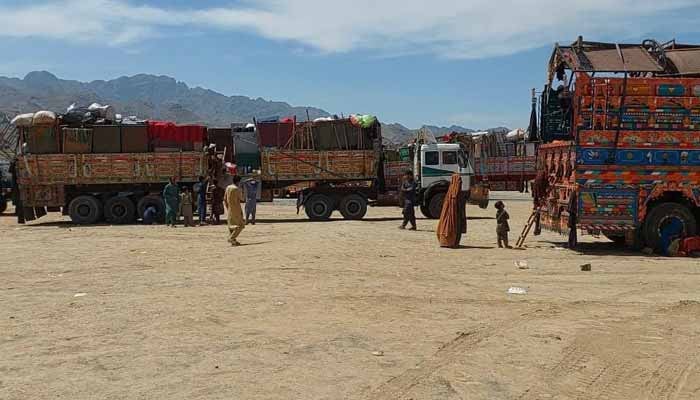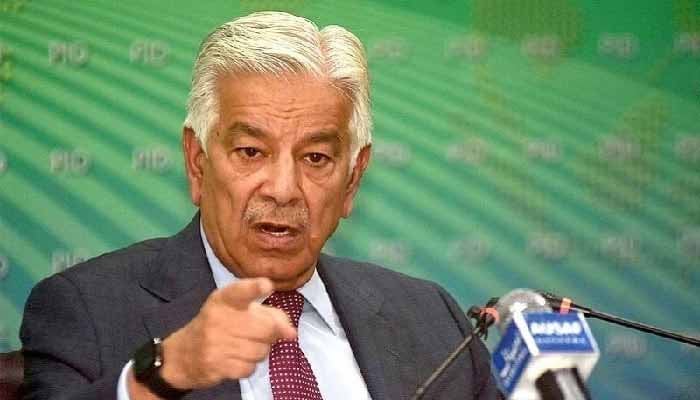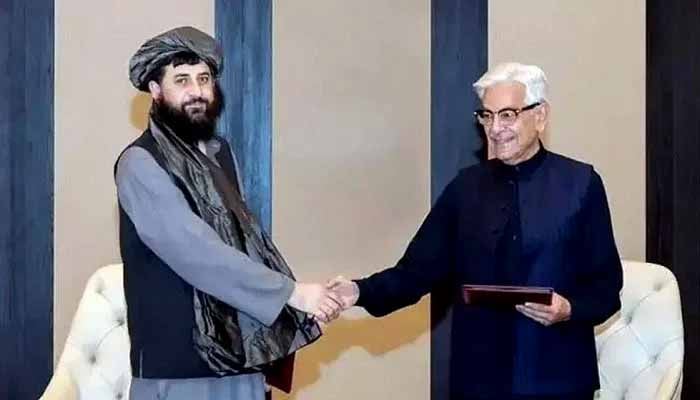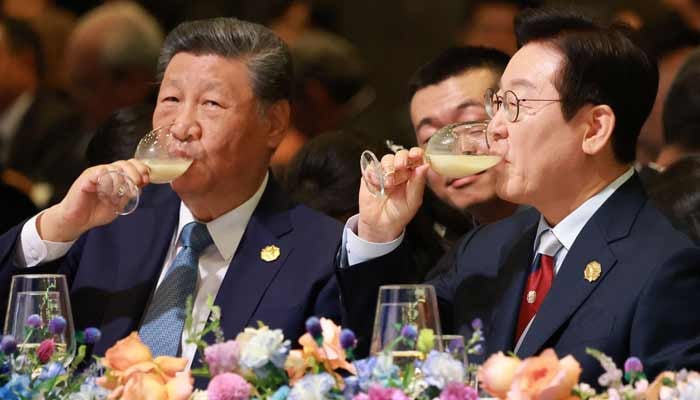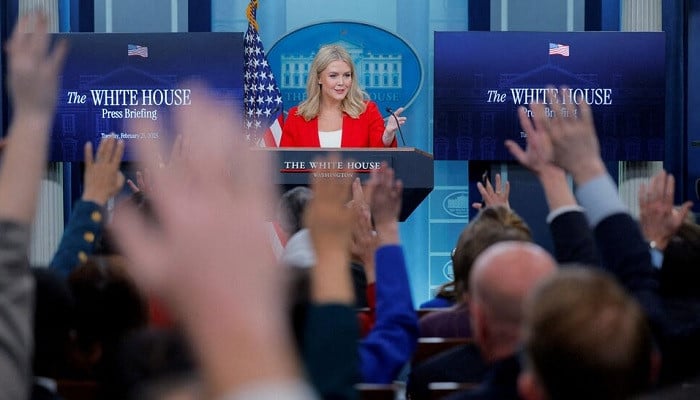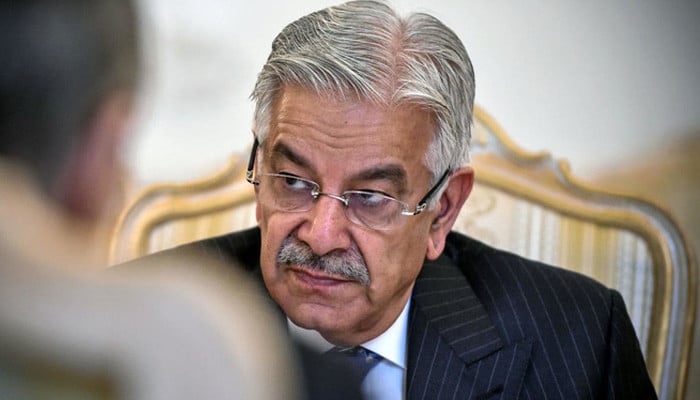
Foreign Minister Khawaja Muhammad Asif listens to his Russian counterpart during his visit to Moscow on February 20, 2018. — AFP
#Asif #hopeful #positive #outcome #PakistanAfghan #talks
Sialkot: Defense Minister Khawaja Asif on Saturday appreciated the constructive mediation role of Turkey and Qatar in the Pakistan-Afghanistan conflict and expressed hope that the efforts would lead to a positive outcome.
Speaking to Geo News, Asif revealed that the issue of Afghan nationals has been raised at the international level for the first time, adding that Turkey and Qatar are playing a constructive mediation role in the talks.
Pakistan and the Afghan Taliban government agreed to maintain the ceasefire after several rounds of talks in Istanbul, read a joint statement issued late Thursday, adding: “Further implementation modalities will be discussed and decided at a principal-level meeting in Istanbul on November 6, 2025.”
Islamabad said that Pakistan and Afghanistan resumed peace talks in Islamabad followed by Istanbul.
Talks broke down when the Taliban refused to provide assurances that groups like the TTP would not use Afghan territory to launch attacks on Pakistan.
Pakistan had renegotiated talks at the request of mediators, Turkey and Qatar, to give peace another chance, while repeatedly urging Kabul to use its territory as a safe haven against militants.
“Earlier, Afghanistan refused to accept the responsibility of its citizens residing illegally in Pakistan, calling it Pakistan’s problem,” the minister told Geo News. “Now, this issue has gained international ownership.”
He added that under the ongoing negotiations, a provision has been added that Afghanistan will be held accountable if any illegal activity originates from Afghan soil.
“There has been no hostile activity from our side. The ceasefire is being violated by Afghanistan,” Asif said.
He observed that there is widespread anger in Pakistan, particularly in Khyber Pakhtunkhwa (KP), the province most affected by cross-border militancy.
“The entire nation, including political leaders and state institutions, are united and want an immediate solution to the Afghan problem,” Asif asserted. “The only solution is for Afghanistan to eliminate terrorism from its soil.”
He maintained that it would be preferable for the two states to maintain civilized relations, and warned that the international community was fully aware of the divisive tactics used by Afghanistan.
Highlighting the shared burden of decades of conflict, Asif said: “The losses incurred by Pakistan during the last five decades are collective losses of both countries.”
The defense minister also accused India of waging a proxy war against Pakistan since the Ashraf Ghani era, asserting that this was now widely accepted. “If necessary, we will produce evidence,” he said.
He alleged that India tries to keep Pakistan at bay on both its eastern and western borders.
“On the eastern front, India has already suffered a setback – Modi has gone silent,” Asif remarked, confidently adding that Qatar and Turkey’s mediation efforts would yield positive results.
The defense czar clarified that the Torkham border was opened solely to facilitate the deportation of illegal Afghan nationals from the country, not for commercial activities.
All trade in Turkham is suspended, Asif said, and visa processing remains in place until ongoing talks with Afghan authorities are concluded.
He emphasized that the process of deportation should continue so that illegal Afghans cannot find excuses to return to Pakistan and resettle.
The repatriation of Afghan families from Pakistan was stopped on October 11 due to border clashes between the two neighboring countries.
Days of clashes prompted Pakistan to seal all its borders with Afghanistan to trade and travel before a cease-fire was broken in Doha on October 19.
